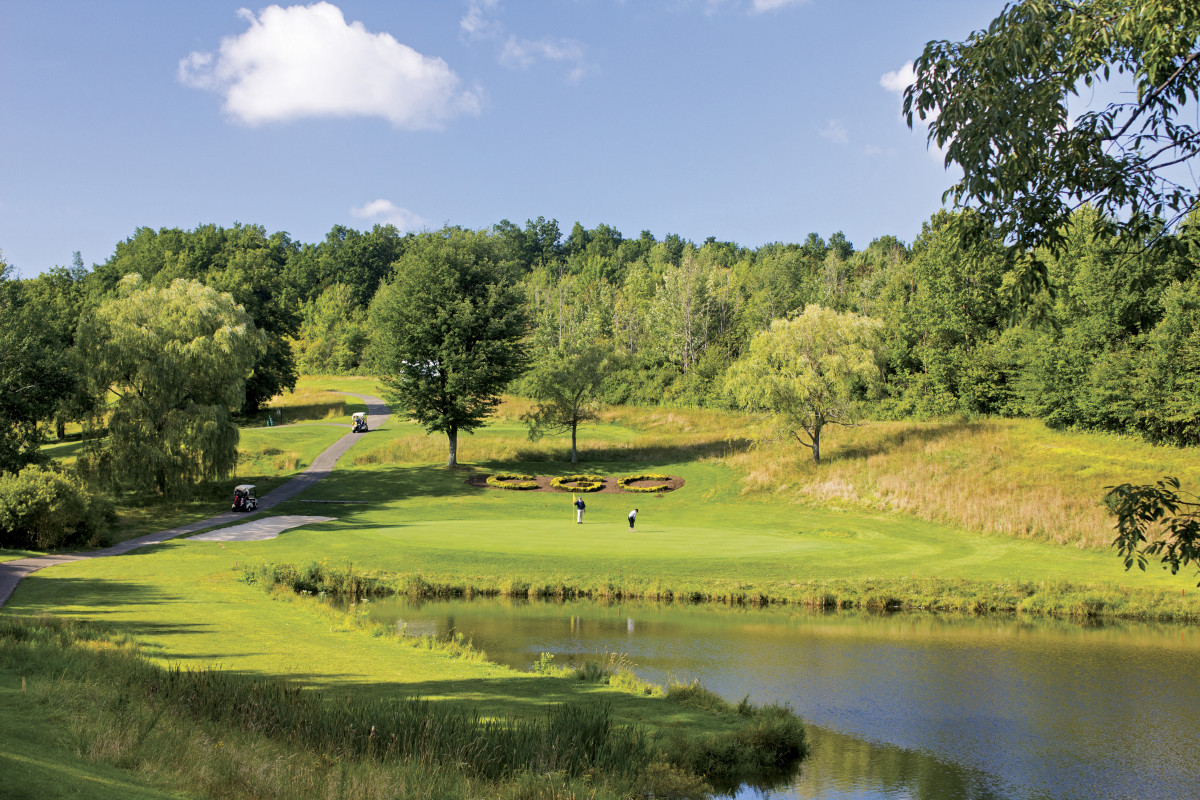In the 150 Forward strategic plan, one goal for the Institution was laid out simply:
“Drive the implementation of a comprehensive, science-based approach to improving the health and sustainability of Chautauqua Lake and elevate its conservation as the centerpiece of the region’s economic prosperity.”
Within recent years, Chautauqua has made strides in protecting the endangered Chautauqua Lake, including the addition of the Climate Change Initiative and the new position, held by Toby Shepherd, of lake project manager.
Achieving sustainability and quality lake health, however, does not happen solely within the gates and along the shore; across West Lake Road, the Institution’s Chautauqua Golf Club is doing their part to restore the environment and reduce threats to Chautauqua Lake.
Chautauqua Golf Club has long dedicated its day-to-day maintenance operations to protecting bodies of water. Through choice in fertilizer, pesticide use, fuel consumption and water management, the Golf Club, with its commitments to sustainability, is one unlike most in Western New York.
“We want to be a model for not only other golf courses, but for property owners, as well,” said Chautauqua Golf Club Superintendent Trevor Burlingame, “to show them that if a 36-hole, 380-acre complex can have a positive impact, then it can certainly be done on a smaller scale at homes and businesses.”
The Golf Club looks much different than it did 40 years ago. In 2008, staff changed fertilizer to eliminate phosphorus runoff in the lake, two years ahead of New York State’s Dishwasher Detergent and Nutrient Runoff Law which called for restrictions on phosphorus products.
They have also adopted the new Minimum Levels for Sustainable Nutrition soil guidelines to better tend to the turf.
“Agriculture needs higher fertility levels to push yield,” Burlingame said. “In the turfgrass world, we want to fertilize for the health of the plant, not for extra growth. The switch to the MLSN model allows us to use significantly less fertilizer than in the past, with the same results.”
The liquid fertilizer is “spoon-fed” by a sprayer in low amounts across the turf to reduce runoff in the lakes and save water. The pesticides applied to the course also goes through the sprayer, reducing runoff by 15%.
Another measure the Golf Club took was to create a 20-acre buffer of natural land to filter runoff around ponds and ditches. This natural landscape feature has saved hours worth of emissions from lawn mowers and provides places for wildlife to burrow.
The efforts of the Golf Club complement the Institution’s projects to mitigate threats on the lake and better educate Chautauqua on climate change.
“We’re pleased to see the deep commitment by the Golf Club, to creating sustainable operations, reducing their impact on the lake,” said Mark Wenzler, director of the Chautauqua Climate Change Initiative. “We are really supporting their efforts here with the Initiative.”
In the coming years, the Golf Club has planned to install a water recycling system to wash the course equipment, reducing overall water usage and runoff. Burlingame also hopes to have the course become certified in the Audubon Cooperative Sanctuary Program for Golf.
“We will continue to look for new and better ways to operate in hopes of being as efficient and environmentally friendly as possible,” Burlingame said. “I will trust that our universities and chemical companies will continue to improve upon products and maintenance methods available. We have advanced so far in the last 30 years, and I am excited to see what the next advancements bring.”





